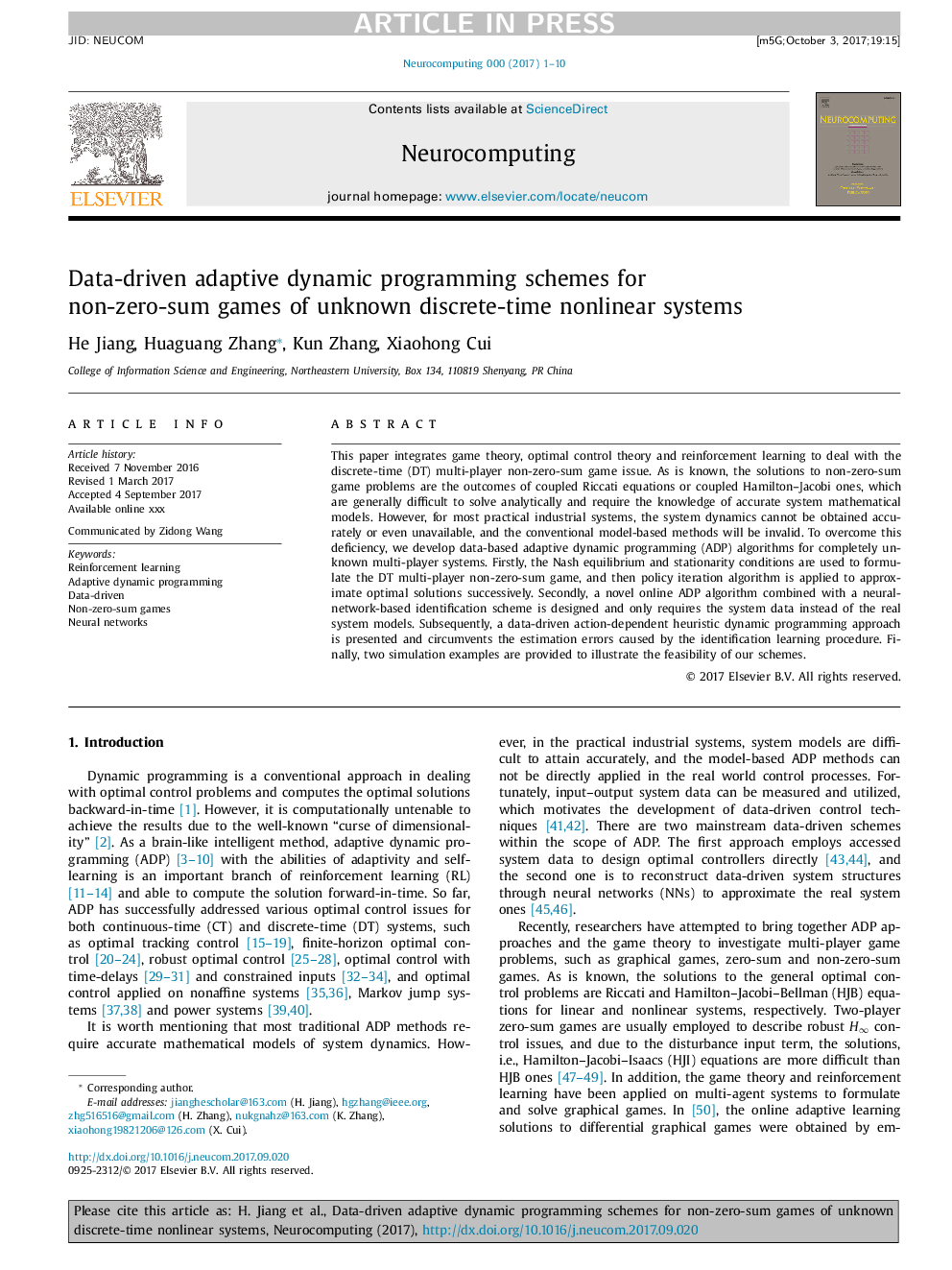ترجمه فارسی عنوان مقاله
طرح های برنامه ریزی پویای سازگار با داده ها برای بازی های غیر صفر از سیستم های غیر خطی زمان گسسته ناشناخته
عنوان انگلیسی
Data-driven adaptive dynamic programming schemes for non-zero-sum games of unknown discrete-time nonlinear systems
| کد مقاله | سال انتشار | تعداد صفحات مقاله انگلیسی |
|---|---|---|
| 111789 | 2018 | 10 صفحه PDF |
منبع

Publisher : Elsevier - Science Direct (الزویر - ساینس دایرکت)
Journal : Neurocomputing, Volume 275, 31 January 2018, Pages 649-658
ترجمه کلمات کلیدی
تقویت یادگیری، برنامه ریزی پویا سازگار، هدایت داده، بازی های غیر صفر، شبکه های عصبی،
کلمات کلیدی انگلیسی
Reinforcement learning; Adaptive dynamic programming; Data-driven; Non-zero-sum games; Neural networks;

